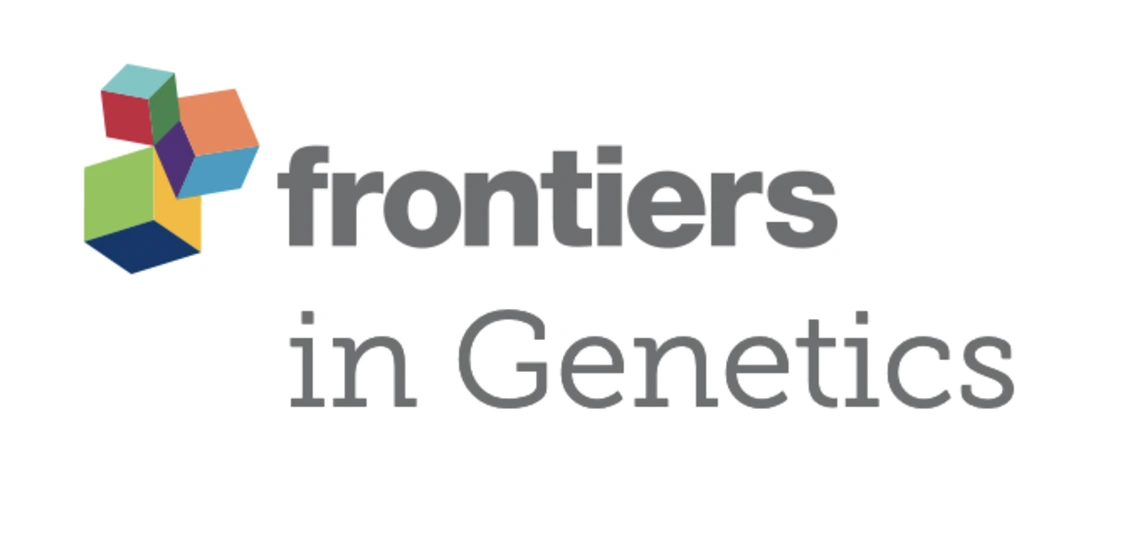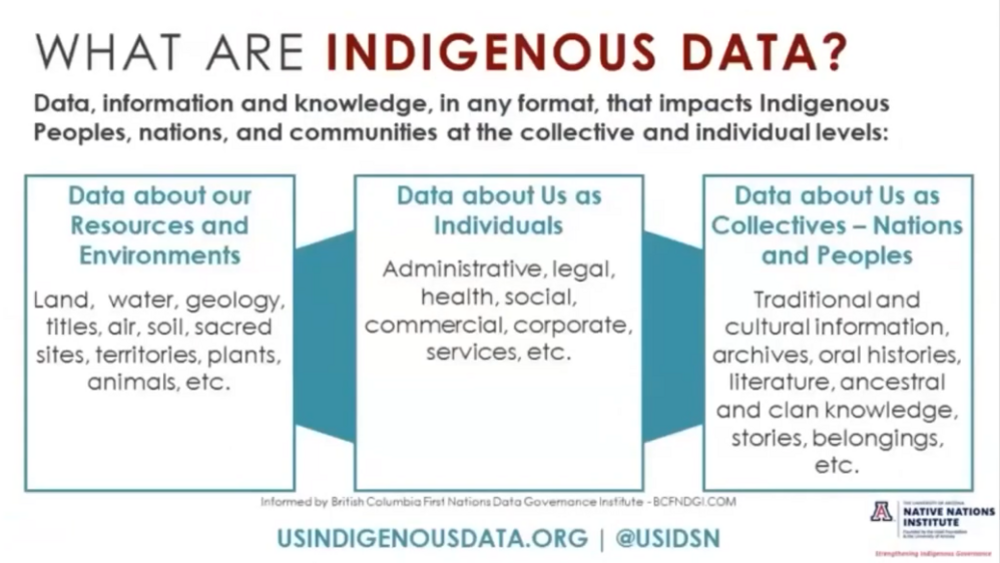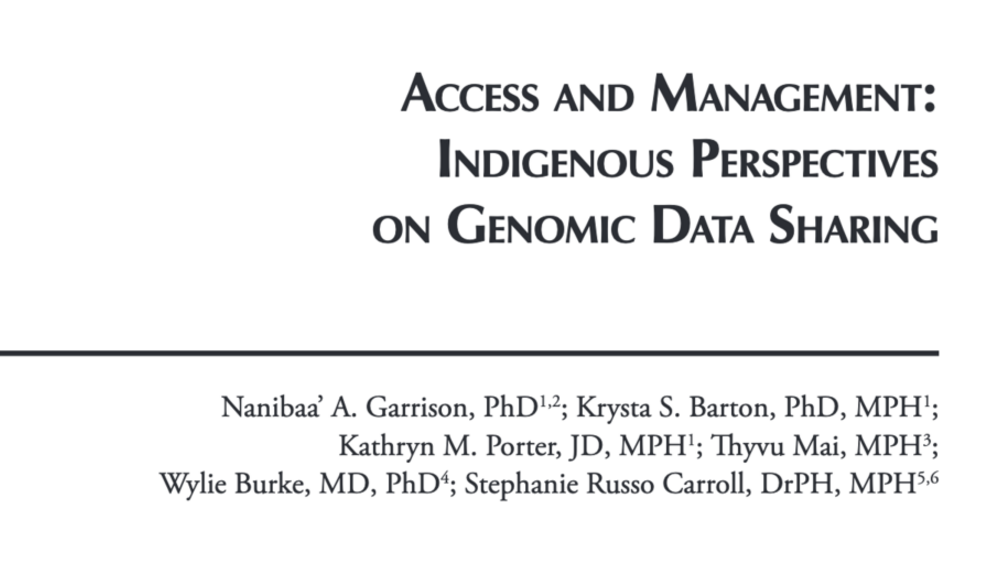Biomedical data are now organized in large-scale databases allowing researchers worldwide to access and utilize the data for new projects. As new technologies generate even larger amounts of data, data governance and data management are becoming pressing challenges. The FAIR principles (Findable, Accessible, Interoperable, and Reusable) were developed to facilitate data sharing. However, the Indigenous Data Sovereignty movement advocates for greater Indigenous control and oversight in order to share data on Indigenous Peoples’ terms. This is especially true in the context of genetic research where Indigenous Peoples historically have been unethically exploited in the name of science.
This article outlines the relationship between sovereignty and ethics in the context of data to describe the collective rights that Indigenous Peoples assert to increase control over their biomedical data. Then drawing on the CARE Principles for Indigenous Data Governance (Collective benefit, Authority to control, Responsibility, and Ethics), we explore how standards already set by Native nations in the United States, such as tribal research codes, provide direction for implementation of the CARE Principles to complement FAIR. A broader approach to policy and procedure regarding tribal participation in biomedical research is required and we make recommendations for tribes, institutions, and ethical practice.
Additional Information
Carroll Stephanie Russo, Garba Ibrahim, Plevel Rebecca, Small-Rodriguez Desi, Hiratsuka Vanessa Y., Hudson Maui, Garrison Nanibaa’ A. Using Indigenous Standards to Implement the CARE Principles: Setting Expectations through Tribal Research Codes. Frontiers in Genetics. Vol. 13. 2022. DOI=10.3389/fgene.2022.823309. https://www.frontiersin.org/article/10.3389/fgene.2022.823309.




